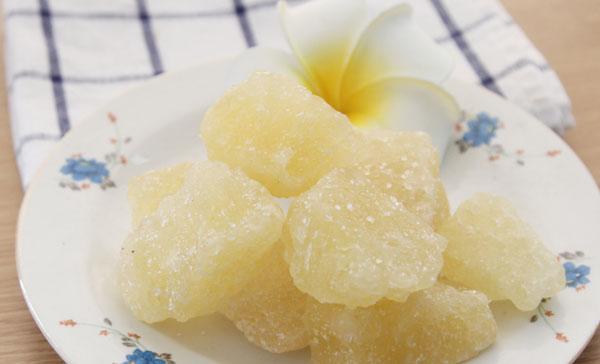Many middle-aged and elderly people will mark themselves as "0 sugar food" and "0 sucrose food" on the label of nutrition products eaten by the elderly. When people see these words, they default to diabetes because it has no sugar. But is that really the case? Look closely at the ingredient list of the product, which is impressively written "glucose syrup" and "maltodextrin", is this not false propaganda?
"0 sugar" and "0 sucrose" are two concepts that need to be distinguished
Sucrose mainly includes white sugar, rock sugar, brown sugar and other edible sugars, which are sweet and produce energy. About 17 kilojoules of granulated sugar per 1g of granulated sugar can be produced, and the human body wants to metabolize the ingested sugars, and needs to coordinate the stomach, liver and muscles to promote metabolism and store energy. "0 sucrose" foods can not contain these sugars, only sugar substitutes can be used.

Since sugar substitutes are mentioned, we must say "0 sugars". Some people will find that although it is marked with "0 sugar", it still has a sweet taste when drinking. This may be related to the sugar substitutes. Sugar substitutes can be divided into nutritious sweeteners and non-nutritive sweeteners, the former, like sucrose, which produces a small amount of calories, and the latter does not.
Nutritional sweeteners include sorbitol, xylitol, mannitol, etc., the sweetness and sucrose are similar, but the calories produced per kilogram are lower than sucrose. Non-nutritive sweeteners can also be divided into natural and synthetic, and do not generate heat. Relatively safe are natural stevia, monk fruit steviol, etc. Synthetic ones include acesulfame potassium, cyclamate, aspartame and so on.
Seeing this, in fact, it can already answer the doubts of many people. Why is it that some foods say "0 sugar 0 calorie", but there is still "sugar" in the ingredient list.
The first reason is false propaganda. Confusing the concepts of "0 sugar" and "0 sucrose", although no sucrose is used, other sugars are used, such as xylitol, sorbitol, etc. This can't be considered a real "0 calorie 0 sugar".
The second reason is that the sugar used is different. According to national regulations, sugar-free food needs to contain less than 0.5 grams of sugar per 100ml/g, and if it can meet this standard, it can be called "sugar-free" food. This allows some foods that use non-nutritive sweeteners to rank among the "0 sugar and 0 calorie" foods.
When you buy food, do you deliberately look for foods that are "0 sugar 0 calories" or "0 sucrose"?
Xiao Zhou said that since he was found to have high blood sugar in pregnancy, he paid special attention to this matter and strictly controlled the sugar he ingested, fearing that his blood sugar would continue to rise. In order to stabilize blood sugar and feast on food, she will pick "0 sugar and 0 calorie" drinks when she goes to the supermarket to buy things, and the food is also "sugar-free" and "sucrose-free" as much as possible to control sugar intake.
But when I went to the review after a period of time, the doctor said that the blood sugar was still relatively high, and when I asked, I knew that many of the foods I ate during this time of Xiao Zhou would raise blood sugar.
For example, sugar-free biscuits, although it is true that only some sugar substitutes are added, but because of the characteristics of the food itself, it contains a high carb content, such a "sugar-free" food, if eaten unscrupulously, the calorie intake is not low. It should be known that what can affect human blood sugar is not only the "added sugar" in food, but also the starch, fat, etc. that are originally contained in food, which may also be converted into sugar in the human body to increase blood sugar.
In order to lose weight, control blood sugar, and protect blood vessels, choosing "0 calories and 0 sugar" foods is not necessarily safe. There is even a concept that needs to be clarified, "0 sugar" does not equal health.
Some people think that the zero sugar food they buy must be healthier than the free sugar foods with sucrose and sugar substitutes, no matter what? Not necessarily.
Some "0 sugar" foods add sugar substitutes are synthetic sweeteners. These sweeteners themselves may have certain calories, and may also be detrimental to weight loss after consumption. Secondly, after long-term intake of these sweeteners, people can stimulate the brain to produce pleasant feelings, but the body does not ingest sugar, it is likely that because of this contrast, people have a stronger desire to eat.
And many people feel that 0 sugar food is relatively healthy, completely use such food to replace daily drinking water or food, which may also cause uneven intake of nutrients, and may bring health threats because of other substances in food. For example, although the sugar in 0 sugar cola is less, the damage of carbonated drinks to the human body will not be reduced.
Instead of blindly believing that "0 sugar 0 calorie" food is healthy food, it is better to make more efforts in the daily diet, polish your eyes to choose the real "0 sugar" food, and eat properly, which can also be more beneficial to health. Especially patients with diabetes, obesity, cardiovascular and cerebrovascular diseases, we must pay more attention.